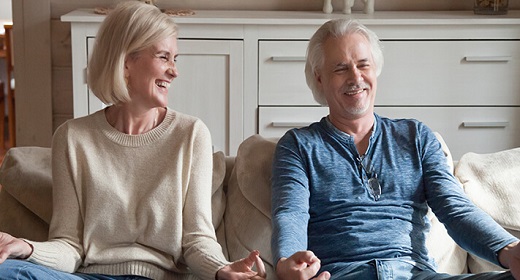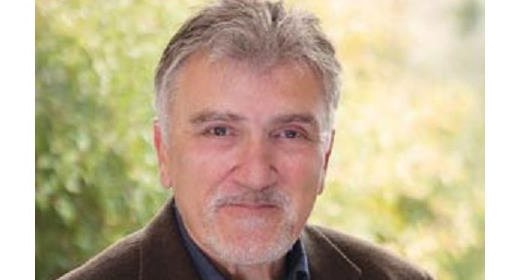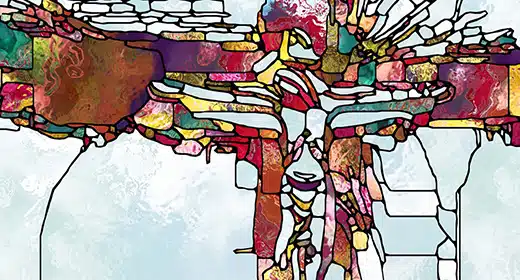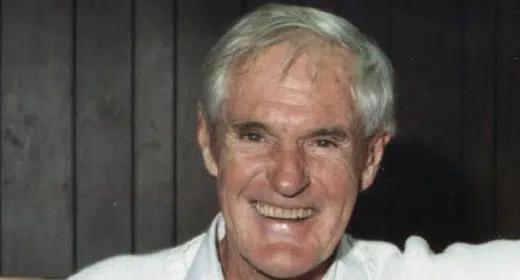Where are you heading? What’s really important to you? Sharon Salzberg on the clearest, most liberating way to direct your own life
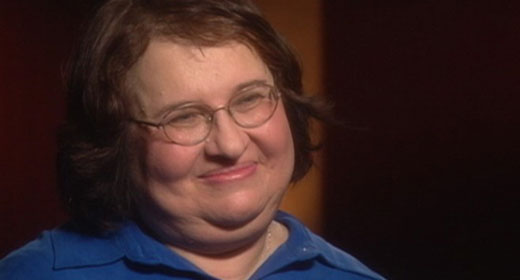
I recently attended a yoga retreat where I was the rank (and awfully timid) novice. Every other student in our class was far more limber, easily flowing into pretzel-like poses. Almost worse, they all seemed to know the traditional Sanskrit name for each move.
One day as my teacher, John Friend, was demonstrating a pose, he made an awkward-looking movement, then rebalanced. Coming out of it he asked, “What just happened?” One by one, my classmates offered a Sanskrit name for that extra little twist. Finally, John turned to me and repeated his question, “What just happened?” I replied, “To be honest, I think you fell.” “You’re right,” he said. “I fell. Then I started over. That’s good yoga.”
I have always regarded John as a wonderful teacher, and I think of that incident as one of his very best lessons. It was about honoring the role of intention, the heart space that guides everything we undertake. If we fall, we don’t need self-recrimination or blame or anger—we need a reawakening of our intention and a willingness to recommit, to be wholehearted once again.
Often we can achieve an even better result when we stumble yet are willing to start over, when we don’t give up after a mistake, when something doesn’t come easily but we throw ourselves into trying, when we’re not afraid to appear less than perfectly polished. By prizing heartfulness above faultlessness, we may reap more from our effort because we’re more likely to be changed by it. We learn and grow and are transformed not so much by what we do but by why and how we do it.
Intention is not just about will—or about resolutions we make on New Year’s Eve with shaky hope in our hearts—but about our overall everyday vision, what we long for, what we believe is possible for us. If we want to know the spirit of our activities, the emotional tone of our efforts, we have to look at our intentions. When my hand reaches to offer someone a book, only my heart knows whether I’m doing it because I like the person or because I think, “Well, I’ll just give her this and perhaps she’ll give me what I want in return.”
Each decision we make, each action we take, is born out of an intention. I sometimes envision a cartoon dinner party, based on a scene in Virginia Woolf’s To the Lighthouse. In that book, one of the characters, Mrs. Ramsay, is so sensitive that she can perceive the thoughts and feelings of each of the people around the table. In my imagined party, I see a scenario where, underneath the polite conversations about world politics or mutual acquaintances, some discerning soul can hear the silent intentions: “If I say this, it might exact the best revenge.” “This will make me look good, far better than that oaf in the corner.” “I’m going to extend an invitation because it will help that lonely person over there.”
The momentary urges that shape what we do are intentions, as are the convictions and aspirations we hold. When we stop before blurting out a nasty piece of gossip and ask ourselves, “Why would I be divulging this?” We’re tuning into our positive intention, our wish to not cause harm.
When someone smiles and congratulates us on a good turn in life, yet we feel we’re at risk of being stabbed in the back, we are—either through unfair projection or good intuition—attempting to read between the lines for the hidden motivation. And when we meet adversity and disappointment, and want to remember what we care about most, we’re searching for our deeply held core vision.
Having been raised, like almost everyone I know, on the maxim “The road to hell is paved with good intentions,” I used to be fixated on achievement. I could feel good about myself if the results of my efforts were measurable by conventional standards and if I received recognition in the eyes of others. If I gave someone a gift, the only way I could regard myself as generous was if the other person thanked me—in fact, usually only if she thanked me long and lavishly enough. Being willing to take a risk, trying hard to navigate new terrain, courageously working to overcome setbacks instead of despairing—none of these counted. Without praise, I didn’t know where to look to find myself.
But if we’re judging our actions solely on the results we see before us, and not considering the heart space giving rise to and threading throughout what we do, then we have to ask, “On whose timetable do we measure success and failure?” Any ordinary favor we do for someone or any compassionate reaching out may seem to be going nowhere at first, but may be planting a seed we can’t see right now. Sometimes we need to just do the best we can and then trust in an unfolding we can’t design or ordain.
There are time, though, when our “well-meaning” actions arise from a complex set of intentions that we aren’t aware of. A seemingly generous act born out of a tangled skein of self-hatred, feeling, I don’t deserve to have anything so I might as well give it away, is more a kind of martyrdom. An act that appears to be ethical but is really born out of fear has its center in rigid repression. Professing love for someone else through giving a gift when, deep down, we can’t easily love ourselves becomes codependency, a loss of boundaries, and a painful and fruitless search for intimacy.
By making an effort to notice our intentions with honesty and clarity, we gain a great deal of freedom. If we take the time to pay quiet attention, perhaps through meditation or contemplation, we may develop a completely different understanding of why we do the things we do and a new perspective on how to trust that we’ve done the best we can.
When we develop the habit of noticing our intentions, we have a much better compass with which to navigate our lives. We learn to cast a glance at our motivation before we speak or act, which frees us to live the life we want.
And it frees us to see more clearly into what our actions mean to us and how we can genuinely manifest what we love and care about. We have the power to create our lives from the inside out. I’m inspired by the example of Sudha Chandran, a contemporary classical Indian dancer whose career was abruptly brought to a halt when her right leg had to be amputated. After she had been fitted with an artificial limb, she went back to dancing. When asked how she had managed it, she responded simply, “You don’t need feet to dance.”

